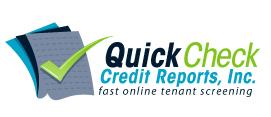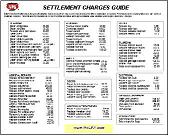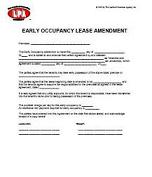Are you a "Buy & Hold" real estate investor?
By John Nuzzolese
 So, you want to be a real estate investor? You are probably thinking the way I did when I started as a real estate investor. I thought the most important objective was to buy as many properties as possible. Well, I was only half right.
So, you want to be a real estate investor? You are probably thinking the way I did when I started as a real estate investor. I thought the most important objective was to buy as many properties as possible. Well, I was only half right.
As an investor in residential real estate, being able to purchase properties that will allow you to make money is paramount. While there are various methods you can use to make your real estate fortune, the two most common plans are quite simple.
Buy and flip. This is when you purchase a property and sell it for a higher price. Many investors will find "Handyman Specials" or "Fixer Uppers" at a low price to improve and sell at a higher price. Sometimes you are fortunate enough to find an excellent opportunity requiring little or no work, only to resell for a quick and easy profit.
Although this is a common way to make money in real estate, many investors choose not to sell their investment property.
Buy and hold. This is when the real estate investor becomes a landlord in order to enable the investment property to generate income. Holding onto the property is also a way to allow the investment to appreciate in value over time. Why? The demand for residential real estate continues to grow and people are willing to pay top dollar for a place to live. What can be better than that? You have an asset appreciating in value plus you also have a tenant to pay your expenses on the property. You may even have a positive cash flow.
So what is "The Secret Career Killer Facing Real Estate Investors"? Before I answer that question, let me ask you,
- What happens when you put investment properties together with tenants?
- You get a landlord tenant relationship. I wish I realized the ramifications earlier.
Tenant problems are the one of the biggest reasons, if not, the biggest reason most landlords quit investing in real estate and sell their rental properties way before benefiting from one of the best features of owning real estate: appreciation.
It is just as important to learn the secrets of landlord protection and property management as it is to know how to accumulate rental property. Let me say it another way: Without knowledge of landlord protection, you as a landlord, are in big trouble!
Think about how much money people spend on books, seminars and trial and error learning about buying real estate. It’s incredible! I invested so much money learning creative ways to buy property. How about you? How much have you invested learning to be an efficient landlord? Most landlords learn their lessons the hard way like I did. Fortunately, now there are some books and websites on landlord topics that can shed some light on the subject and allow average landlords and “Newbies” to become educated and aware of their legal rights concerning landlord – tenant relationships.
What good is struggling and sacrificing to own a lot of properties only to bail out because of overwhelming tenant problems?
Get educated in the art of “landlord protection”. Learn how to avoid tenant problems so you can keep buying more investment property.
The three most important landlord issues to learn about for your own protection are:
- Screening and Tenant Selection
- I always say, "95% of tenant problems can be eliminated in the screening process!" It really is so true. A lot goes into screening a tenant properly, so try not to jump into any lease agreements without doing your homework first. The article, How to Screen Tenants in 5 Easy Steps will help you break down what to do when it comes to screening your potential tenants. The idea is to make the screening process as simple as possible for you while helping you to eliminate the unqualified prospects and focus on the more promising ones.
- Using a solid landlord lease
- One of the keys to a good landlord – tenant relationship is having both parties involved come to an understanding and agree with the terms in the rental contract. All too often we hear of and see tenant problems that could have been avoided if only the parties had used a better lease agreement. The problems usually stem from an issue that the lease should have covered, but did not. Most of the traditional leases are designed to make both parties happy, especially the tenants. Conventional leases are politically correct not to offend tenants and often leave the landlord wide open and prone to problems with the tenancy. Unless the landlord takes steps to protect himself in his lease agreement, the law will offer the tenants a strong bundle of rights giving them a legal advantage.
- Lease Enforcement
- Even with the greatest lease agreement in the world, a landlord faces a myriad of potential tenant problems. Enforcing the lease has to start the moment you sit down with the tenant at the lease signing. I know you may still be in the negotiating stage on certain items concerned in the lease, but enforcing the lease begins here. Reading the entire lease, clause by clause, emphasizing topics that are important to you reinforces your terms from that point on. Later on, when lease infractions occur, you must be prepared to jump on the issues professionally and immediately. Having the proper landlord forms to enforce your lease is essential. Using forms to correct tenant problems is both professional and efficient because you are creating an official record on paper of your legal communications concerning the events at hand. From an Urgent Late Notice to a more serious Eviction Notice served properly on a tenant, the landlord projects a far more professional image. The objective of the lease enforcement forms is to squash small tenant problems quickly and professionally before they develop into full blown disasters, while snapping the tenant back in compliance with your lease agreement.
If you have experienced the unpleasant part of being a landlord which includes loss of rent, possible foreclosure, loss of sleep, confrontations with unreasonable tenants, expensive repairs and restoration, vandalism, theft, squatters, evictions, legal fees, you may have had to consider if it's all worth it or not. Many new new investor / landlords decide quit the landlording business soon after a bad tenant experience.
As a real estate investor who intends to be a landlord and enjoy that excellent long term appreciation, it is absolutely imperative to have some landlording knowledge. I strongly recommend having more landlord tenant knowledge than your tenants do!
Happy investing and landlording!
About the author:
As a Real Estate broker / investor in New York, John Nuzzolese has been involved with rentals and investment property since 1979. Besides owning and operating two real estate businesses, he is president and founder of The Landlord Protection Agency, Inc. , an organization specializing in helping landlords and property managers avoid the hurdles and pitfalls and expensive blunders common when dealing with tenants.
More information on The Landlord Protection Agency is available at www.theLPA.com
Copyright © 2000 - 2014 The Landlord Protection Agency, Inc. All Rights Reserved.










 If you're like me, it really bothers you when people take advantage of you and leave your rental property owing you rent money and other damages.
If you're like me, it really bothers you when people take advantage of you and leave your rental property owing you rent money and other damages.

 To be enforceable, Late fees must be considered reasonable in the eyes of the court and must not exceed the amount of the debt.
To be enforceable, Late fees must be considered reasonable in the eyes of the court and must not exceed the amount of the debt. Require Photo ID:
Require Photo ID: When a tenant wants to terminate a tenancy, it is done in one of two ways. Either:
When a tenant wants to terminate a tenancy, it is done in one of two ways. Either:




 Most landlords enter into a rental relationship with a tenant with good intentions and positive expectations. Like a chef who assembles and cooks a gourmet dish, a landlord also must consider the elements of a rental transaction with a tenant and the rental property.
Most landlords enter into a rental relationship with a tenant with good intentions and positive expectations. Like a chef who assembles and cooks a gourmet dish, a landlord also must consider the elements of a rental transaction with a tenant and the rental property.
 On a very cold winter day a neighbor called me to tell me that one of my tenants had their windows wide open. I pay for the heat. I immediately went to see my tenant who complained that she had the windows open because her apartment was unbearably hot. I glance at the thermostat to see that it is set to - 80 degrees!!!! As I point to the thermostat in an accusatory way, while attempting to control my temper, she says "what is that?" God bless tenants.
On a very cold winter day a neighbor called me to tell me that one of my tenants had their windows wide open. I pay for the heat. I immediately went to see my tenant who complained that she had the windows open because her apartment was unbearably hot. I glance at the thermostat to see that it is set to - 80 degrees!!!! As I point to the thermostat in an accusatory way, while attempting to control my temper, she says "what is that?" God bless tenants.

 Take a look at this crude drawing I made of a triangle. The 3 sides are labeled with "Fast", "Qualified", and "Best Price".
Take a look at this crude drawing I made of a triangle. The 3 sides are labeled with "Fast", "Qualified", and "Best Price".



 Eviction Ramifications Notice
Eviction Ramifications Notice


 So, you want to be a real estate investor? You are probably thinking the way I did when I started as a real estate investor. I thought the most important objective was to buy as many properties as possible. Well, I was only half right.
So, you want to be a real estate investor? You are probably thinking the way I did when I started as a real estate investor. I thought the most important objective was to buy as many properties as possible. Well, I was only half right.




 Checks bounce when the tenant doesn’t have the money in the bank
Checks bounce when the tenant doesn’t have the money in the bank


 On the top right below the rental address is a payment breakdown area which includes:
On the top right below the rental address is a payment breakdown area which includes: